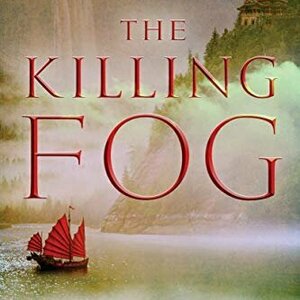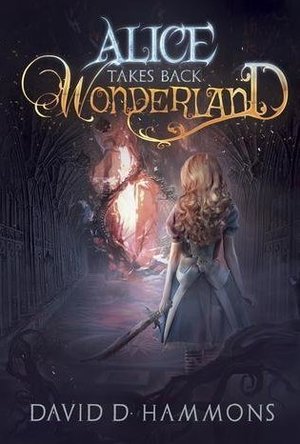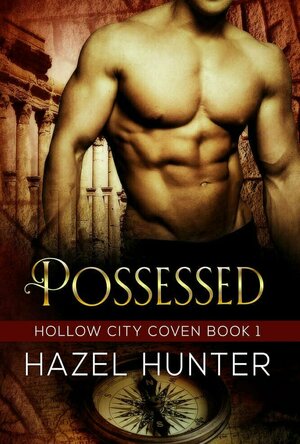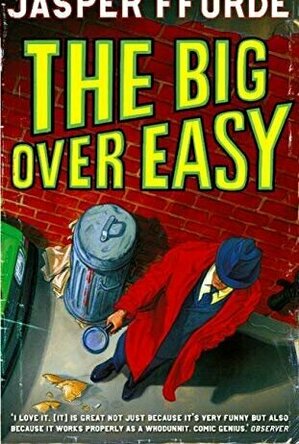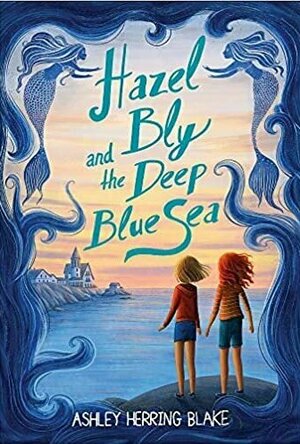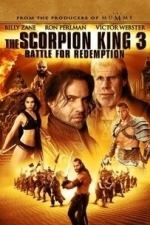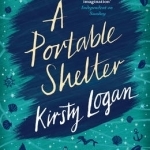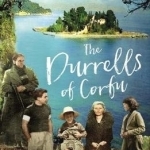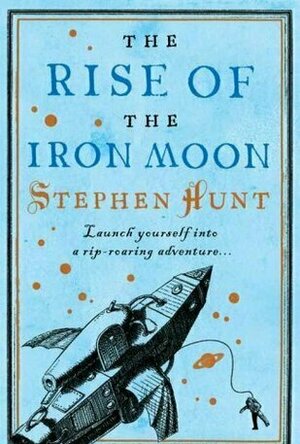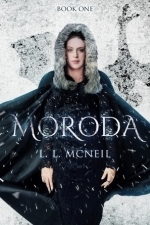Search
Search results
Anne (15117 KP) rated The Killing Fog (The Grave Kingdom, #1) in Books
Nov 4, 2019
Thanks to NetGalley and 47North for letting me read and review this incredible story. I'm already anxiously awaiting the next book in this series! I love and have read most of Jeff Wheeler's works and he never disappoints with his stories full of adventure, intrigue, romance, life lessons and so much more. It's always one wild rollercoaster ride with my emotions when I read one of his books, but I always learn or take away something and enjoy the stories immensely.
I always find myself easily lost and immersed in the worlds he creates and invested in the characters and the stories they have to tell. This story is very unique and different from others that Jeff Wheeler has written and just as amazing and engrossing as the others I have read.
In this story, we find ourselves following along with this story of an orphaned girl named Bingmei, who is with a group of mercenaries that serve a local ruler. They are sent on a mission to find and retrieve what treasures they can that are in a lost palace buried and preserved in ice. But when they get there, they find more than they bargained for and when they upset the tomb, they unknowingly cause havoc.
Bingmei unknowingly brings Echion, Dragon of the Night back to life, waking him from his tomb and now is meant to fulfill her part in the legendary prophecy. She has to destroy Echion before he takes over all the kingdoms and he has to stop her from destroying him. Bingmei knows what she has to do, but she doesn't know if she can do it.
This is in a world of ancient myth, legend, magic and is a story about love, loss, grief, balance, duty, honor and what people do when faced with difficult choices in heart-rending situations and so much more. You definitely want to have this one on your list, preorder it and read it as soon as you can.
I always find myself easily lost and immersed in the worlds he creates and invested in the characters and the stories they have to tell. This story is very unique and different from others that Jeff Wheeler has written and just as amazing and engrossing as the others I have read.
In this story, we find ourselves following along with this story of an orphaned girl named Bingmei, who is with a group of mercenaries that serve a local ruler. They are sent on a mission to find and retrieve what treasures they can that are in a lost palace buried and preserved in ice. But when they get there, they find more than they bargained for and when they upset the tomb, they unknowingly cause havoc.
Bingmei unknowingly brings Echion, Dragon of the Night back to life, waking him from his tomb and now is meant to fulfill her part in the legendary prophecy. She has to destroy Echion before he takes over all the kingdoms and he has to stop her from destroying him. Bingmei knows what she has to do, but she doesn't know if she can do it.
This is in a world of ancient myth, legend, magic and is a story about love, loss, grief, balance, duty, honor and what people do when faced with difficult choices in heart-rending situations and so much more. You definitely want to have this one on your list, preorder it and read it as soon as you can.
Sophia (Bookwyrming Thoughts) (530 KP) rated Alice Takes Back Wonderland in Books
Jan 23, 2020
Review copy provided by the publisher via Netgalley
This review and more can be found at <a href="http://www.inwonderlandbookblog.com/2016/01/alice-takes-back-wonderland-review.html">In Wonderland</a>
Alice Takes Back Wonderland is one peculiar book – it took awhile for me to get into the story, but not bad overall (I've read worse).
The main character, Alice, is a little similar to Alyssa from Splintered – she talks to bugs and flowers, and they talk to her as well. And unlike Alyssa, who keeps her "ability" a secret, those around Alice assume she's a nutcase – she's been assumed to have schizophrenia along with ADHD. Alice also isn't related to Wonderland Alice – she just ended up going down the rabbit hole at seven and came back a completely different person.
Years later, just when Alice thinks everything in Wonderland was an imagination, the White Rabbit appears again to bring Alice back to save Wonderland. There, Ace of Spades has taken over the land and has been trying to "humanize" the creatures by taking the wonder out of them, thus taking Alice back down the rabbit hole once more.
When Hammons introduces us to Wonderland and Alice tries to reunite with the creatures she met when she was seven, it's really hard to get into the story (and at the beginning too – no fun). There's a lot of nonsense going on in Wonderland with very little sense – I haven't read Alice In Wonderland by Lewis Carroll myself, but I personally think Hammons did a pretty good job trying to capture the nonsensical aspect Carroll uses in the original story.
Now, in the case of getting me to read the story, however, I'm starting to think I should just call it off (much to Ella's dismay).
As soon as Alice leaves Wonderland to recruit other kingdoms (fairy tales), on the other hand, the story becomes less nonsensical and more of something that I could fully comprehend and wrap my head around. (I got the gist of Wonderland – I did not understand what all the creatures were saying.) Hammons introduces us Peter Pan and the Lost Boys, Pinocchio, Cinderella, Snow White, Sleeping Beauty – all recognizable in some way. But that's not all the fairy tales involved.
Hammons also throws in heroes of myth and legend as well – people such as Joan the Ark, Hercules, King Arthur, Loki, etc. At that point, I pretty much took a step back (or almost) from the book. There are way too many tales involved in this battle to take back Wonderland and stop the Ace of Spades from taking the wonder out of everyone. Those characters don't play a major role like Peter Pan, Pinocchio, Snow White, and all the ones mentioned earlier, so it's less confusing. I just think Hammons should have kept it strictly at fairy tales rather than all of them.
(I'll give him this: all of them are individual kingdoms instead of mushed together into one. Less confusing.)
To make it worse, most of the characters also play multiple roles, which I won't say because I might spoil something. But still – too much myth and legend is mentioned in this vast world Hammons creates.
Overall, not bad for a book that takes far too many tales into its plot. It takes some time to get used to the story, but once you get past Wonderland's bit of remaining nonsense and enter Neverland and the Grimm Kingdom, the story has an adventure or two as Alice learns that maybe fairy tales aren't as literal as they seem.
This review and more can be found at <a href="http://www.inwonderlandbookblog.com/2016/01/alice-takes-back-wonderland-review.html">In Wonderland</a>
Alice Takes Back Wonderland is one peculiar book – it took awhile for me to get into the story, but not bad overall (I've read worse).
The main character, Alice, is a little similar to Alyssa from Splintered – she talks to bugs and flowers, and they talk to her as well. And unlike Alyssa, who keeps her "ability" a secret, those around Alice assume she's a nutcase – she's been assumed to have schizophrenia along with ADHD. Alice also isn't related to Wonderland Alice – she just ended up going down the rabbit hole at seven and came back a completely different person.
Years later, just when Alice thinks everything in Wonderland was an imagination, the White Rabbit appears again to bring Alice back to save Wonderland. There, Ace of Spades has taken over the land and has been trying to "humanize" the creatures by taking the wonder out of them, thus taking Alice back down the rabbit hole once more.
When Hammons introduces us to Wonderland and Alice tries to reunite with the creatures she met when she was seven, it's really hard to get into the story (and at the beginning too – no fun). There's a lot of nonsense going on in Wonderland with very little sense – I haven't read Alice In Wonderland by Lewis Carroll myself, but I personally think Hammons did a pretty good job trying to capture the nonsensical aspect Carroll uses in the original story.
Now, in the case of getting me to read the story, however, I'm starting to think I should just call it off (much to Ella's dismay).
As soon as Alice leaves Wonderland to recruit other kingdoms (fairy tales), on the other hand, the story becomes less nonsensical and more of something that I could fully comprehend and wrap my head around. (I got the gist of Wonderland – I did not understand what all the creatures were saying.) Hammons introduces us Peter Pan and the Lost Boys, Pinocchio, Cinderella, Snow White, Sleeping Beauty – all recognizable in some way. But that's not all the fairy tales involved.
Hammons also throws in heroes of myth and legend as well – people such as Joan the Ark, Hercules, King Arthur, Loki, etc. At that point, I pretty much took a step back (or almost) from the book. There are way too many tales involved in this battle to take back Wonderland and stop the Ace of Spades from taking the wonder out of everyone. Those characters don't play a major role like Peter Pan, Pinocchio, Snow White, and all the ones mentioned earlier, so it's less confusing. I just think Hammons should have kept it strictly at fairy tales rather than all of them.
(I'll give him this: all of them are individual kingdoms instead of mushed together into one. Less confusing.)
To make it worse, most of the characters also play multiple roles, which I won't say because I might spoil something. But still – too much myth and legend is mentioned in this vast world Hammons creates.
Overall, not bad for a book that takes far too many tales into its plot. It takes some time to get used to the story, but once you get past Wonderland's bit of remaining nonsense and enter Neverland and the Grimm Kingdom, the story has an adventure or two as Alice learns that maybe fairy tales aren't as literal as they seem.
Merissa (12889 KP) rated Possessed (Hollow City Coven #1) in Books
Apr 18, 2023
Everyone has heard of the lost city of Atlantis, but how many have heard of the last city of Tenebris? Tenebris is part of Wiccan history that has been relegated to myth and legend - which is actually hard to do when you can live for thousands of years. Gillian loves to research and thinks that she has found a clue about where Tenebris actually is. She is determined to find it, but her Coven Master doesn't want her to go alone. She is assigned a 'bodyguard' in the form of Shayne. Sparks fly between the two before they even know each other.
This is a fast-paced romantic novella, with lots of action too. Wiccans have a very real enemy in the shape of Templars. Gillian appears to be more than she actually knows, so how do the Templars know about her already? What do they want her for? You are left with all these questions, but you still feel that you have started an excellent series.
If you like Paranormal Romance, then I can definitely recommend this new series by Hazel Hunter, and I am definitely looking forward to Book 2.
* A copy of this book was provided to me with no requirements for a review. I voluntarily read this book; the comments here are my honest opinion. *
Merissa
Archaeolibrarian - I Dig Good Books!
Oct 8, 2015
This is a fast-paced romantic novella, with lots of action too. Wiccans have a very real enemy in the shape of Templars. Gillian appears to be more than she actually knows, so how do the Templars know about her already? What do they want her for? You are left with all these questions, but you still feel that you have started an excellent series.
If you like Paranormal Romance, then I can definitely recommend this new series by Hazel Hunter, and I am definitely looking forward to Book 2.
* A copy of this book was provided to me with no requirements for a review. I voluntarily read this book; the comments here are my honest opinion. *
Merissa
Archaeolibrarian - I Dig Good Books!
Oct 8, 2015
Phil Leader (619 KP) rated The Big Over Easy (Nursery Crime, #1) in Books
Nov 8, 2019
After the success of his Thursday Next books, in which the heroine can enter works of fiction and interact with the characters, Fforde dusted off a previous idea for a novel: a town where nursery rhyme characters are real. Humpty Dumpty is found in pieces at the bottom of his wall, but did he fall or was he pushed?
Investigated by detective Jack Spratt (usefully the name Jack is quite common in nursery rhymes) and his new partner Mary Mary we meet a number of characters from nursery rhymes, songs and myth and legend. As the body count rises Jack and Mary must do what all the king's horses and all the king's men couldn't, and assemble the pieces of Humpty's demise to find the culprit.
The world Fforde creates - a fictional version of the town of Reading (and strongly implied to be the same world that Thursday Next lives in, in the book-within-a-book Caversham Heights) works suprisingly well, perhaps because other than the traits inherited from their nursery rhymes the characters are otherwise conventional. So Jack can't eat any fat and is destined to sell something for beans, but at the core is a straightforward detective.
This contrasts with, say, The Hollow Chocolate Bunnies of the Apocalypse by Robert Rankin which again is a detective story populated with nursery rhyme characters (and poor Humpty is again a victim, but in a very different murder) where the setting is in Toyland so doesn't have the grounding of reality that The Big Over Easy does.
The plot itself is very complex - there are red herrings, theories and suspects galore - and Fforde enjoys playing with the reader as much as with Jack. And there is of course humour aplenty, both simple gags from the story and characters and also some good knowing winks to the reader when events mirror the characters' nursery rhymes. Above all Fforde never forgets that this is after all a detective novel.
Probably not quite as good as the Thursday Next books but definitely a good read and will entertain from the first to the last page.
Investigated by detective Jack Spratt (usefully the name Jack is quite common in nursery rhymes) and his new partner Mary Mary we meet a number of characters from nursery rhymes, songs and myth and legend. As the body count rises Jack and Mary must do what all the king's horses and all the king's men couldn't, and assemble the pieces of Humpty's demise to find the culprit.
The world Fforde creates - a fictional version of the town of Reading (and strongly implied to be the same world that Thursday Next lives in, in the book-within-a-book Caversham Heights) works suprisingly well, perhaps because other than the traits inherited from their nursery rhymes the characters are otherwise conventional. So Jack can't eat any fat and is destined to sell something for beans, but at the core is a straightforward detective.
This contrasts with, say, The Hollow Chocolate Bunnies of the Apocalypse by Robert Rankin which again is a detective story populated with nursery rhyme characters (and poor Humpty is again a victim, but in a very different murder) where the setting is in Toyland so doesn't have the grounding of reality that The Big Over Easy does.
The plot itself is very complex - there are red herrings, theories and suspects galore - and Fforde enjoys playing with the reader as much as with Jack. And there is of course humour aplenty, both simple gags from the story and characters and also some good knowing winks to the reader when events mirror the characters' nursery rhymes. Above all Fforde never forgets that this is after all a detective novel.
Probably not quite as good as the Thursday Next books but definitely a good read and will entertain from the first to the last page.
Kristy H (1252 KP) rated Hazel Bly and the Deep Blue Sea in Books
Jul 8, 2021
A beautiful story about love and loss
Hazel Bly lived a great life with her Mum and Mama until a kayaking accident. Then her Mum died, leaving Hazel with a scar on her face and terrible anxiety. She wants nothing more than to keep her little sister Peach safe. The Blys move around a lot now. Two years after the accident, they are in Maine. It turns out that one of their new neighbors is her Mama's old childhood friend, Claire. The introduction of Claire into Hazel's world--along with her chatty daughter Lemon--makes Hazel feel unsettled. Plus Lemon is fixated on a local legend, the Rose Maid, a mermaid often seen in the waters. Hazel notes a resemblance between herself and Rose and soon she finds herself as fascinated by the mermaid as Lemon. Because sometimes everyone needs to believe in a little magic, especially when their world is crumbling around them.
"Now it's two and one, with me as the odd one out."
Oh this book is excellent-- an absolutely stunning read, which captures grief and loss so viscerally. I truly felt traumatized at times on Hazel's behalf. With the death of her Mum, she is so afraid something will happen to Peach, or even her Mama, and this fear comes through the pages so strongly. It's heartbreaking. Her fear of being happy again. You just want to wrap this sweet kid in your arms and hug her until everything is okay. Blake writes Hazel so well, and her grief, passion, and emotions come across so well.
Everything in this book is amazing--the magical and whimsical myth of the Rose Maid; the diversity of the characters; and the total acceptance of Hazel's parents being gay and bi. It's not a big deal in this book for parents to be queer or friends to be nonbinary. How wonderful for a YA story.
This is an exceptional tale about family, love, loss, healing, and magic. It made me cry, but it left me hopeful too. It's touching and heartfelt. Highly recommend. 4.5 stars.
"Now it's two and one, with me as the odd one out."
Oh this book is excellent-- an absolutely stunning read, which captures grief and loss so viscerally. I truly felt traumatized at times on Hazel's behalf. With the death of her Mum, she is so afraid something will happen to Peach, or even her Mama, and this fear comes through the pages so strongly. It's heartbreaking. Her fear of being happy again. You just want to wrap this sweet kid in your arms and hug her until everything is okay. Blake writes Hazel so well, and her grief, passion, and emotions come across so well.
Everything in this book is amazing--the magical and whimsical myth of the Rose Maid; the diversity of the characters; and the total acceptance of Hazel's parents being gay and bi. It's not a big deal in this book for parents to be queer or friends to be nonbinary. How wonderful for a YA story.
This is an exceptional tale about family, love, loss, healing, and magic. It made me cry, but it left me hopeful too. It's touching and heartfelt. Highly recommend. 4.5 stars.
Jordan Binkerd (567 KP) rated The Scorpion King 3: Battle For Redemption (2012) in Movies
Oct 27, 2019
Victor Webster sells the fights (5 more)
Ron Perlman is never a bad thing.
Neither is Temura Morrison.
Billy Zane is comically evil
Krystal Vee and Selina Lo pull off their reason for being here - hot chicks kicking ass.
Nice scenery and sets
Victor Webster fails to sell being The Rock, even aside from skin ton (2 more)
The story and lore are all over the place, not helped by the setting
The Warriors of the book announcing themselves just felt silly and contrived
Muddies the franchise and lore
The longer this goes the more damage this franchise does to itself. Let's review what we've seen so far:
-The Mummy Returns: At the end of his life, the Scorpion King leads an army to take over and subjugate the world, aided by Anubis, which proves that the Egyptian gods are, you know, gods.
-The Scorpion King: Mathayus is ostensibly the last living Akkadian, and leads a revolt against an evil king who....wants to take over and subjugate the world. Some tragic irony there, knowing where he ends up.
-The Scorpion King II: Rise of a Warrior: There's a whole kingdom of Akkadians, and Mathayus leads a revolt against the general who killed both his father and the rightful King, usurping the throne. Given that just a decade or two later the entire race has been wiped out, maybe putting the rightful heir back on the throne didn't end well?
Which brings us to this movie, featuring numerous human characters with the names of the Egyptian pantheon (maybe named in homage to their gods, but it feels like the idea is that these men will be mistaken for God's by myth and legend) and doubles down on the "conquest is evil" theme. Mathayus has lost his queen and kingdom from the first film to plague, reduced to being a mercenary again. The action primarily happens in Egypt and.... Cambodia? Vietnam? Thailand? Somewhere around there, with little explanation of how the characters go that distance. This just makes the whole thing more inconsistent and convoluted. I shudder to think about the damage the next one will do....
-The Mummy Returns: At the end of his life, the Scorpion King leads an army to take over and subjugate the world, aided by Anubis, which proves that the Egyptian gods are, you know, gods.
-The Scorpion King: Mathayus is ostensibly the last living Akkadian, and leads a revolt against an evil king who....wants to take over and subjugate the world. Some tragic irony there, knowing where he ends up.
-The Scorpion King II: Rise of a Warrior: There's a whole kingdom of Akkadians, and Mathayus leads a revolt against the general who killed both his father and the rightful King, usurping the throne. Given that just a decade or two later the entire race has been wiped out, maybe putting the rightful heir back on the throne didn't end well?
Which brings us to this movie, featuring numerous human characters with the names of the Egyptian pantheon (maybe named in homage to their gods, but it feels like the idea is that these men will be mistaken for God's by myth and legend) and doubles down on the "conquest is evil" theme. Mathayus has lost his queen and kingdom from the first film to plague, reduced to being a mercenary again. The action primarily happens in Egypt and.... Cambodia? Vietnam? Thailand? Somewhere around there, with little explanation of how the characters go that distance. This just makes the whole thing more inconsistent and convoluted. I shudder to think about the damage the next one will do....
Eilidh G Clark (177 KP) rated A Portable Shelter in Books
May 13, 2017
‘…there’s no other way to give you the truth except to hide it in a story and let you find your own way inside.’
‘…there’s no other way to give you the truth except to hide it in a story and let you find your own way inside.’
Kirsty Logan’s first collection of short stories, The Rental Heart and Other Fairytales, published by Salt in 2014, won the Polari First Book Prize in 2015. A Portable Shelter is her second collection. Set in a small cottage in the rural north coast of Scotland, Ruth and Liska are expecting their first child. The couple believe that their unborn baby will have a better chance of survival away from the harshness of suburban life. They make a pact with one another, that they will only ever tell their child the truth. Yet while Liska is asleep or Ruth is at work, each whispers secret stories to their unborn child. Delving into fantastical tales about people from their past and re-telling stories that span from generation to generation, the couple unfold the horrors of the real world. Whilst these tales, laced in myth and legend, and fattened with the magic of the imagination, demonstrate the art of oral storytelling, Logan reaches further to show the reader why storytelling is important.
While this book is primarily a collection of short stories, its novel like structure frames each story with a preceding monologue from either Ruth or Liska. The monologues offer delightful morsels of description that bring the harshness of Mother Nature into the safety of the couple’s bedroom, “right now our home is speaking to you. The walls creak their approval in the wind. The rain applauds on the roof. The lighthouse beam swoops, swoops, swoops. The tide breathes loud and slow like a giant. If you listen carefully, perhaps you can even hear the moon hum.” The pace of these sentences, combined with the delicacy of language demonstrates Logan’s skill at describing the sublime spirit of the natural world, which brings the narrative to life.
Most impressive though, is Logan’s poetic language and carefully crafted sentences which create the most beautiful imagery. In ‘Flinch,’ for example – James is a fisherman struggling with his identity, yet his affiliation with the land is locked into his first-person point of view where the reader gets to closely experience what he sees, “The sky is pinkish-grey like the insides of shells. Speckled bonxies wheel overhead. Seals loll on the rocks, fat as kings. The rising mist is cool and milky.” Any of these lines could easily be arranged into a poem and with sentences that are squeezed tight; they create a wonderful poetic rhythm. Logan uses this technique throughout her novel, demonstrating the precision and craft in her work. There are definite similarities in her writing style to fellow Scottish novelist and poet Jenni Fagan. Both authors use rich language, which is well crafted and smattered with vernacular. Furthermore, combining this with the reoccurring theme of identity, the oral storytelling tradition, landscape, folklore, and myth, it is clear to see why these authors contribute to the growing canon in Scottish literature.
This is a book that I will read over and over again because I know that in each reading, I will find something new. A Portable Shelter, I feel, deserves a place on my ‘keep’ book shelf.
A Portable Shelter, Kirsty Logan, London: Vintage, 2015
Kirsty Logan’s first collection of short stories, The Rental Heart and Other Fairytales, published by Salt in 2014, won the Polari First Book Prize in 2015. A Portable Shelter is her second collection. Set in a small cottage in the rural north coast of Scotland, Ruth and Liska are expecting their first child. The couple believe that their unborn baby will have a better chance of survival away from the harshness of suburban life. They make a pact with one another, that they will only ever tell their child the truth. Yet while Liska is asleep or Ruth is at work, each whispers secret stories to their unborn child. Delving into fantastical tales about people from their past and re-telling stories that span from generation to generation, the couple unfold the horrors of the real world. Whilst these tales, laced in myth and legend, and fattened with the magic of the imagination, demonstrate the art of oral storytelling, Logan reaches further to show the reader why storytelling is important.
While this book is primarily a collection of short stories, its novel like structure frames each story with a preceding monologue from either Ruth or Liska. The monologues offer delightful morsels of description that bring the harshness of Mother Nature into the safety of the couple’s bedroom, “right now our home is speaking to you. The walls creak their approval in the wind. The rain applauds on the roof. The lighthouse beam swoops, swoops, swoops. The tide breathes loud and slow like a giant. If you listen carefully, perhaps you can even hear the moon hum.” The pace of these sentences, combined with the delicacy of language demonstrates Logan’s skill at describing the sublime spirit of the natural world, which brings the narrative to life.
Most impressive though, is Logan’s poetic language and carefully crafted sentences which create the most beautiful imagery. In ‘Flinch,’ for example – James is a fisherman struggling with his identity, yet his affiliation with the land is locked into his first-person point of view where the reader gets to closely experience what he sees, “The sky is pinkish-grey like the insides of shells. Speckled bonxies wheel overhead. Seals loll on the rocks, fat as kings. The rising mist is cool and milky.” Any of these lines could easily be arranged into a poem and with sentences that are squeezed tight; they create a wonderful poetic rhythm. Logan uses this technique throughout her novel, demonstrating the precision and craft in her work. There are definite similarities in her writing style to fellow Scottish novelist and poet Jenni Fagan. Both authors use rich language, which is well crafted and smattered with vernacular. Furthermore, combining this with the reoccurring theme of identity, the oral storytelling tradition, landscape, folklore, and myth, it is clear to see why these authors contribute to the growing canon in Scottish literature.
This is a book that I will read over and over again because I know that in each reading, I will find something new. A Portable Shelter, I feel, deserves a place on my ‘keep’ book shelf.
A Portable Shelter, Kirsty Logan, London: Vintage, 2015
Mayhawke (97 KP) rated The Durrells of Corfu in Books
Feb 13, 2018
Truth Without Disenchantment
I think the first thing to note is that there is probably no point in reading this book if you haven't at the very least watched one of the T.V. series. Indeed a lot of it will probably go right over your head if you are not well-versed in Durrell's tales of his childhood in Corfu.
I am, and have been since I first picked My Family And Other Animals when I was eleven - which is longer ago now than I would really like to think about! Age aside, my point is this: I have read and loved these books many times, and for several decades. Durrell was my first 'grown up' read as a child and the Corfu trilogy has long been ranked in my 'comfort reads' - those books you turn to again and again when you just want something familiar and easy. It was with some concern, then, that I picked up the ARC of Haag's book when it landed in our staff room. I didn't want my illusions destroyed, and whilst it goes largely without saying that there was going to be some massaging of the truth in Durrell's autobiographical stories I wasn't sure that I was ready for The Truth, The Whole Truth, and Nothing But.
Haag, it turns out, is also a little bit in love with the Durrells. As such I can think of few better people to write the bald truth about this family without destroying the charm and good humour of Gerald Durrell's books for those of us who want to hold on to the myth. This delicate unravelling begins on the very first page as Haag presents the reader with the brutal and tragic truth behind the Corfu sojourn - the sudden death of Durrell Snr at the age of just forty-four. In My Family Gerald Durrell manages to skim over this uncomfortable truth with such success that he imparts the information that his mother is a widow without ever giving the reader space to think or question more deeply into the effect on the family beyond their enforced to move back to cold, rainy England - a place from which they then escaped to Corfu, so legend has it, for no more pressing reason than to avoid colds.
And so Haag's biography continues, with a gentle but unrelenting quality, to pull scales from eyes. Using tracts from Durrell's books he often does little more than a simple but effective compare and contrast with reality: introducing characters who were completely written out of the Durrell legend, yet were significant members of the Durrell collective; opening up the more Bohemian aspects of their life, and the way they were perceived by other immigrant British at the time.
Haag also exposes the more complex relationships within the family. Lawrence, who is presented through young Gerry's eyes as probably his greatest critic it transpires is his greatest champion: directing and ensuring Gerry's education whilst keeping him free of the structure and strictures of school; the somewhat sadder story of belligerent and boisterous Leslie - so much larger-than-life in the Corfu books, who later seems to become estranged from the family; and perhaps most surprising of all - Margo, who had a life that rivals either of her famous brothers for interest and adventure, at least in her younger years.
All of these uncomfortable exposes Haag achieves, and I feel far better informed about the family now, than I ever have yet never once have I felt that I will not be able to return and pick up Gerry Durrell's books and read them with the same joy and pleasure that I have done for the last four decades.
I am, and have been since I first picked My Family And Other Animals when I was eleven - which is longer ago now than I would really like to think about! Age aside, my point is this: I have read and loved these books many times, and for several decades. Durrell was my first 'grown up' read as a child and the Corfu trilogy has long been ranked in my 'comfort reads' - those books you turn to again and again when you just want something familiar and easy. It was with some concern, then, that I picked up the ARC of Haag's book when it landed in our staff room. I didn't want my illusions destroyed, and whilst it goes largely without saying that there was going to be some massaging of the truth in Durrell's autobiographical stories I wasn't sure that I was ready for The Truth, The Whole Truth, and Nothing But.
Haag, it turns out, is also a little bit in love with the Durrells. As such I can think of few better people to write the bald truth about this family without destroying the charm and good humour of Gerald Durrell's books for those of us who want to hold on to the myth. This delicate unravelling begins on the very first page as Haag presents the reader with the brutal and tragic truth behind the Corfu sojourn - the sudden death of Durrell Snr at the age of just forty-four. In My Family Gerald Durrell manages to skim over this uncomfortable truth with such success that he imparts the information that his mother is a widow without ever giving the reader space to think or question more deeply into the effect on the family beyond their enforced to move back to cold, rainy England - a place from which they then escaped to Corfu, so legend has it, for no more pressing reason than to avoid colds.
And so Haag's biography continues, with a gentle but unrelenting quality, to pull scales from eyes. Using tracts from Durrell's books he often does little more than a simple but effective compare and contrast with reality: introducing characters who were completely written out of the Durrell legend, yet were significant members of the Durrell collective; opening up the more Bohemian aspects of their life, and the way they were perceived by other immigrant British at the time.
Haag also exposes the more complex relationships within the family. Lawrence, who is presented through young Gerry's eyes as probably his greatest critic it transpires is his greatest champion: directing and ensuring Gerry's education whilst keeping him free of the structure and strictures of school; the somewhat sadder story of belligerent and boisterous Leslie - so much larger-than-life in the Corfu books, who later seems to become estranged from the family; and perhaps most surprising of all - Margo, who had a life that rivals either of her famous brothers for interest and adventure, at least in her younger years.
All of these uncomfortable exposes Haag achieves, and I feel far better informed about the family now, than I ever have yet never once have I felt that I will not be able to return and pick up Gerry Durrell's books and read them with the same joy and pleasure that I have done for the last four decades.
Phil Leader (619 KP) rated The Rise of the Iron Moon (Jackelian #3) in Books
Nov 25, 2019
This book looked interesting so I picked it up. I'd not heard of Stephen Hunt or this series but the premise intrigued me.
Although this is the third book of the series and there are plenty of references to events that must take place in the previous books, and despite the writing being immersive rather than explanatory, I found it easy to get into the story.
The world is very interesting. I have read other novels set in a faux Victorian Steampunk-like world but nothing like this. This is like an alternative history, extremely divergeant from ours but with enough similarities that the combination is quite striking.
For example there was a civil war in the past which parliament won, as in the 'real' British history. However all of the royals have been locked up ever since in the Royal Breeding House - kept as figureheads under constant house arrest and threat of execution at the whim of parliament to appease the masses.
There are also countries ruled by thinking, steam driven machines. Others beneath the waves or living strictly by some political principal.
However the world is under threat. All the countries are being slowly invaded from the North by a very aggressive foe. Under attack the land of Jackals itself calls on its heroes to save the day. Purity Blake, one of the inmates of the Royal Breeding House. Molly Templar, writer of penny dreadful science fiction stories and sometimes defender of the land. Coppertracks, a machine life steam man and scientist. Their companions must overcome impossible odds and put aside the enmity between nations to fight off the attackers. Against all the odds, can they succeed?
The book is a little slow to start up, as the characters are introduced in their diverse environments. But slowly the threads are drawn together and each play their part in the fight. And as they begin to weave into the plot the pace quickens. The story twists and turns, always astonishing in its concept and direction.
The outstanding part of this book is the imagination that has gone into it. Nearly everything is completely different from our world and yet it ties together convincingly into a land both of industry and grime, poverty and privilege but also of very real myth and legend.
The ending is a little bit Deus Ex Machina but really this fits in with the tone quite well and at least keeps the pace up in the final pages. There are enough wonderful and fantastic ideas let loose to wander around in this book for several novels.
Definitely a recommended book. I now need to search out the first book - The Court Of The Air - so I can find out what has happened to the characters before.
Although this is the third book of the series and there are plenty of references to events that must take place in the previous books, and despite the writing being immersive rather than explanatory, I found it easy to get into the story.
The world is very interesting. I have read other novels set in a faux Victorian Steampunk-like world but nothing like this. This is like an alternative history, extremely divergeant from ours but with enough similarities that the combination is quite striking.
For example there was a civil war in the past which parliament won, as in the 'real' British history. However all of the royals have been locked up ever since in the Royal Breeding House - kept as figureheads under constant house arrest and threat of execution at the whim of parliament to appease the masses.
There are also countries ruled by thinking, steam driven machines. Others beneath the waves or living strictly by some political principal.
However the world is under threat. All the countries are being slowly invaded from the North by a very aggressive foe. Under attack the land of Jackals itself calls on its heroes to save the day. Purity Blake, one of the inmates of the Royal Breeding House. Molly Templar, writer of penny dreadful science fiction stories and sometimes defender of the land. Coppertracks, a machine life steam man and scientist. Their companions must overcome impossible odds and put aside the enmity between nations to fight off the attackers. Against all the odds, can they succeed?
The book is a little slow to start up, as the characters are introduced in their diverse environments. But slowly the threads are drawn together and each play their part in the fight. And as they begin to weave into the plot the pace quickens. The story twists and turns, always astonishing in its concept and direction.
The outstanding part of this book is the imagination that has gone into it. Nearly everything is completely different from our world and yet it ties together convincingly into a land both of industry and grime, poverty and privilege but also of very real myth and legend.
The ending is a little bit Deus Ex Machina but really this fits in with the tone quite well and at least keeps the pace up in the final pages. There are enough wonderful and fantastic ideas let loose to wander around in this book for several novels.
Definitely a recommended book. I now need to search out the first book - The Court Of The Air - so I can find out what has happened to the characters before.
Uptown Oracle (24 KP) rated Moroda in Books
Jun 30, 2017
A Great Debut Fantasy Novel!
As we traipse the countries and cities of Linaria following a band of unlikely comrades, we're introduced to magic, dragons, and a foe leading a trail of destruction in his wake. Moroda and her allies must find a way to save Linaria before the war destroys them and everything around them.
One of my favourite parts of the book is that there's multiple wonderful characters. We have our main character, Moroda and her sister Eryn, two former Goldstones trying to survive after their fathers death. There's Morgen an Imperial Guard from Corhaven, who's unsure as to whether life in the Guard is for him. Amarah, a brusk sky pirate who cares more for money and treasure. Palom and Anahrik, two Ittallan traders who want to get back to their homeland before war hits. Sapora, a Varkain who also wants to return to his homeland, away from the prejudice against his kind. And Kohl, an exiled Arillian who can control wind and lightening. Groups are often used within the fantasy genre but Moroda doesn't confuse you with multitudes of characters.
The world of Linaria has different prejudices and stereotypes against races and the inclusion of these races allows to get a much better, unbiased opinion. Each of our characters has their own thoughts, motivations, backgrounds and histories. Despite preconceived views of each other, the characters are all individual. There's also strong character growth, especially for Moroda throughout the book. There was definitely the risk of falling into common female fantasy tropes with Moroda, but McNeil manages to miss each of these skillfully.
The only criticism is the antagonist, Aciel. Being told by other characters what Aciel was doing and how, is very different to be able to see it. There was a lost connection that I personally like having with the villains. We meet him and he does speak a little bit, but there's definitely that lack of attachment. This criticism is also very personal, as I know a lot of people wouldn't mind this at all.
As with any fantasy novel, you need a wonderful fantasy land. There's exploration of multiple cities, and also some comparisons by the characters themselves. Each place has it's own background and vivid descriptions. I'm really looking forward to more exploration of Sereth, the Varkain capital. There's also undertones of myth, lore and legend within Linaria. Which although not explored completely within this book will be fantastic to build upon in later books.
Moroda is romance free which I loved. I've read so many books recently where the romantic subplot overshadows the real plot, and this was so refreshing. The focus was on the friendships being made over the journey, and the sisterly bond between Moroda and Eryn.
Overall I loved Moroda. Perfect to go into reading more over summer as I've finally finished exams!
One of my favourite parts of the book is that there's multiple wonderful characters. We have our main character, Moroda and her sister Eryn, two former Goldstones trying to survive after their fathers death. There's Morgen an Imperial Guard from Corhaven, who's unsure as to whether life in the Guard is for him. Amarah, a brusk sky pirate who cares more for money and treasure. Palom and Anahrik, two Ittallan traders who want to get back to their homeland before war hits. Sapora, a Varkain who also wants to return to his homeland, away from the prejudice against his kind. And Kohl, an exiled Arillian who can control wind and lightening. Groups are often used within the fantasy genre but Moroda doesn't confuse you with multitudes of characters.
The world of Linaria has different prejudices and stereotypes against races and the inclusion of these races allows to get a much better, unbiased opinion. Each of our characters has their own thoughts, motivations, backgrounds and histories. Despite preconceived views of each other, the characters are all individual. There's also strong character growth, especially for Moroda throughout the book. There was definitely the risk of falling into common female fantasy tropes with Moroda, but McNeil manages to miss each of these skillfully.
The only criticism is the antagonist, Aciel. Being told by other characters what Aciel was doing and how, is very different to be able to see it. There was a lost connection that I personally like having with the villains. We meet him and he does speak a little bit, but there's definitely that lack of attachment. This criticism is also very personal, as I know a lot of people wouldn't mind this at all.
As with any fantasy novel, you need a wonderful fantasy land. There's exploration of multiple cities, and also some comparisons by the characters themselves. Each place has it's own background and vivid descriptions. I'm really looking forward to more exploration of Sereth, the Varkain capital. There's also undertones of myth, lore and legend within Linaria. Which although not explored completely within this book will be fantastic to build upon in later books.
Moroda is romance free which I loved. I've read so many books recently where the romantic subplot overshadows the real plot, and this was so refreshing. The focus was on the friendships being made over the journey, and the sisterly bond between Moroda and Eryn.
Overall I loved Moroda. Perfect to go into reading more over summer as I've finally finished exams!
